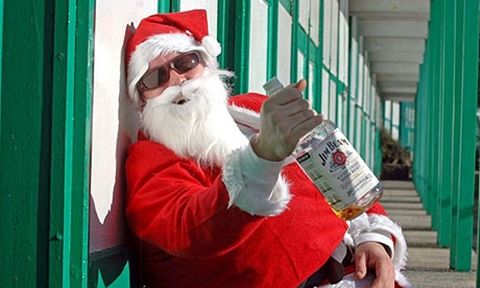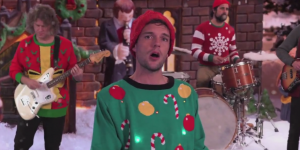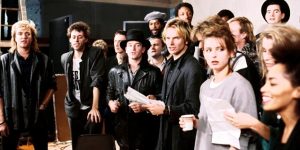 Music
Music
"Jingle Bells" is actually a drinking song written by a deadbeat dad
by Mark Teo
December 23, 2014
Along with the Home Alone soundtrack, “Jingle Bells” will forever be associated with the holiday season: From late November onwards, it’s piped out of every mall soundsystem worldwide. It’s a beloved carol sung by thousands of door-to-door Yuletide revellers. And along with gingerbread houses, the stop-motion Rudolph the Red-Nosed Reindeer flick, and St. Nick himself, it’s a hallmark of Christmas. There’s only one problem with “Jingle Bells”: It’s not actually a Christmas song.
The truth behind “Jingle Bells,” as CBC reports, begins in Medford, Massachusetts. Back in the 19th Century, says Boston University’s Kyna Hamill, the town used to host sleigh races—the old-timey version of drag races, she says—and that’s where the song’s racing references, like “dashing through the snow,” originate. Like Pitbull’s contributions to the Fast and the Furious soundtracks, James Lord Pierpont was likely inspired by the wintertime races.
Furthermore, the song may pay tribute to one of the town’s historic industries—making rum. “[If] you really think about the lyrics of the song, with the lens that these are drag races that are happening at top speed down the centre of [a] street, one of the suggestions is that it’s actually a drinking song,” she adds. “Some of the words are actually associated with the idea that this is a song you sing while you’re drunk, talking about an event that happened while they were drunk.”
No, it’s not a stretch, especially when you consider two things: Pierpont’s background and the song’s final verses. Pierpont was allegedly a deadbeat dad who’d leave his family on a dime, chasing the gold rush out west. When his first wife died, says Hamill, Pierpont abandoned his first children and remarried. And he didn’t agree with his strict abolitionist father—”Jingle Bells,” which was never a Christmas song, was actually written in 1857, at the town’s now-defunct Simpson Tavern. It’s very possible, it seems, that Pierpont was drunk when he wrote the song.
As for the song’s additional verses, it’s pretty evident they’re about drinking and womanizing. Take, for example, its second verse, which involves picking up a woman and then drifting into a snowbank. “A day or two ago, I thought I’d take a ride / And soon, Miss Fanny Bright was seated by my side,” Pierpont wrote. “The horse was lean and lank / Misfortune seemed his lot / He got into a drifted bank and then we got upsot.”
Then, Pierpont writes of being discovered laying in the snow—likely from imbibing too much of that sweet Medford rum.
A day or two ago,
The story I must tell
I went out on the snow,
And on my back I fell
A gent was riding by
In a one-horse open sleigh,
He laughed as there I sprawling lie,
But quickly drove away.Now the ground is white
Go it while you’re young,
Take the girls tonight
and sing this sleighing song;
Just get a bobtailed bay
Two forty as his speed
Hitch him to an open sleigh
And crack! you’ll take the lead.
So, how did “Jingle Bells” become a Christmas song? Pierpont moved to Georgia after he remarried, and became the musical director at a local church. When he played his drinking song to the congregation, they loved it—and history was made. [H/T CBC]
Tags: Music, News, christmas, Jingle Bells





